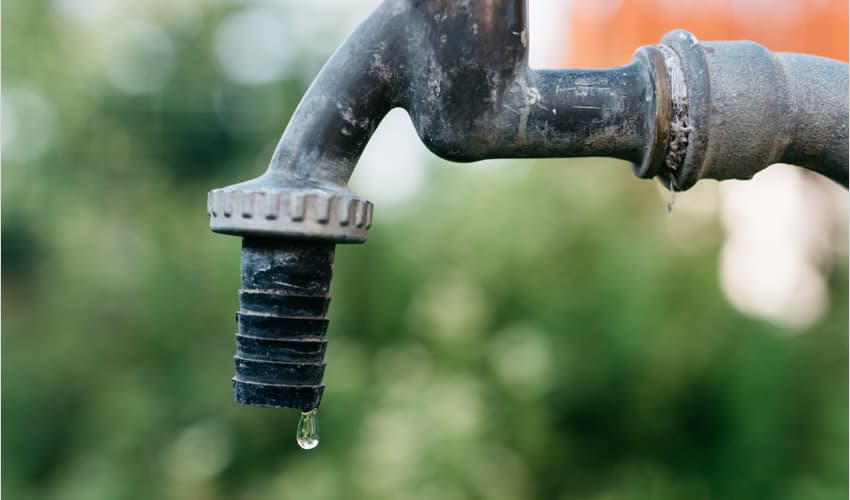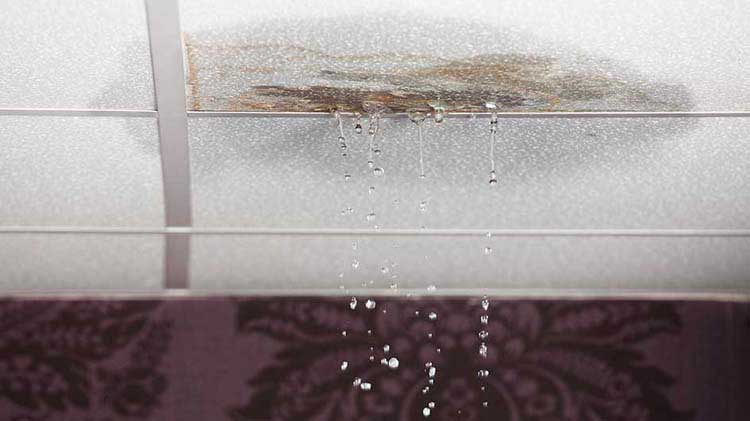Your Home's Primary Frequent Water Leak Causes: Investigation
Your Home's Primary Frequent Water Leak Causes: Investigation
Blog Article
We've come across the article on Common Water Leaks In House listed below on the net and think it made perfect sense to talk about it with you on this site.

Leaks not just cause waste of water however can additionally cause unneeded damage to your house and also promote unwanted natural development. By understanding and looking for daily circumstances that create leaks, you can shield your residence from future leakages and unnecessary damage.
Immediate temperature modifications.
Extreme temperature level modifications in our pipelines can trigger them to increase as well as get unexpectedly. This development and contraction might cause fractures in the pipelines, specifically if the temperature are below cold.
Rusty water systems
As time goes by, your plumbing system ages and also corrosion such as rust may start gnawing the pipelines. This could be the reason for staining or warping on your water pipes. This asks for an evaluation with your plumber instantly. If our plumbing system is old, think about replacing the pipelines since they go to a greater danger of corrosion than the newer designs.
Malfunctioning Pipeline Joints
The point at which your pipes connect is frequently the weakest web link in the waterline. Pipeline joints can weaken over time, causing water leaks. Unfortunately, most of pipeline joints are not easily noticeable. If you have loud pipes that make ticking or banging sounds, particularly when the warm water is switched on, your pipeline joints are probably under a lot of pressure. It is suggested to have your plumber evaluate your system annually.
Trespassing origins
Most water leakages begin outside your home instead of inside it. If you see an abrupt decrease in water stress, claim in your tap, take some time to head out and also examine your lawn. You may notice wet spots or sinkholes in your backyard, and that might suggest that tree origins are getting into water lines causing water to permeate out. You can have your plumber check for intrusion, specifically if you have trees or hedges near your property.
Poor Water Connectors
At times, a leakage can be caused by loosened tubes as well as pipelines that provide your appliances. Most of the time, shifting is what creates the loose water Connections. You might find in the case of a washing machine, a tube might spring a leakage due to trembling throughout the spin cycle. In case of a water links leakage, you might see water running straight from the supply line or puddles around your home appliances.
Clogged Drains
Obstructed drains could be irritating as well as inconveniencing, but they can often wind up causing an overflow resulting in break pipelines. Keep removing any type of products that might drop your drains that might block them to prevent such aggravations.
All the above are causes of leakages but not all water leaks result from plumbing leaks; some leakages may come from roof leakages. All leaks should be repaired promptly to avoid water damages.
Leakages not just create waste of water but can likewise cause unneeded damages to your house and advertise undesirable organic development. By looking and also recognizing for daily situations that create leaks, you can protect your residence from future leaks and also unnecessary damages. Today, we will look at 6 leak triggers that might be triggering your pipelines to leak.
At times, a leakage can be caused by loosened tubes as well as pipelines that provide your appliances. In situation of a water links leak, you may observe water running straight from the supply line or puddles around your home appliances.
Tell-Tale Signs of a Water Leak
The Sound of Running Water
If you’re hearing water running, your first step should be to check your faucets, toilet valves, and outdoor spigots. If everything if status quo, take an exact reading of your water meter and don’t use the water for a few hours. Then, take another meter reading. If there has been no change, that means water is not running (and maybe it’s time to have your hearing checked!). If the reading has changed, however, this indicates that water is indeed flowing and you most likely have a leak.
Wet or Damp Floors
You’re walking across your carpet and suddenly squish—your sock is soaked! The dog doesn’t look guilty and your child swears they didn’t spill anything. That means you’re likely looking at sewer leakage. Now, it’s easy to just soak it up with a towel and call it a day; however, this won’t stop the leak. Ignoring the problem allows moisture to build up, ultimately causing mold or mildew. Not only is this smelly, it can be very toxic and harmful to children, the elderly, pets, and those with weak immune systems. Don’t risk the health of your home and your family—call in a professional to take care of the problem.
Foul Odors
If there’s an unpleasant smell in your home and you can’t locate the source, don’t just light a candle or spray some Febreze. Funky smells are often due to mold and mildew, which spread fast under ideal conditions (optimal temperature and level of humidity). Growth begins within about 24-48 hours, and spores start to colonize in 3-12 days, becoming visible to the eye within about 18 days. If you think the odor is leak-related, get a plumber out as soon as possible to mitigate damage from rapid fungi growth (and rid your home of the foul odor).
Overgrowth in the Lawn
Unless you didn’t fertilize your lawn evenly, a lush patch of grass in a select area of your lawn, or concentrated wet spots, indicate pipe leakage which is acting as a fertilizer. Left untreated, hazardous bacteria in the underground waste will quickly turn into a messy situation, going from lush growth to lawn destruction.
Wall Cracks
Over time, even the littlest of leaks can cause cracks in the foundation of your home and compromise the entire structure. How does it happen? The leak continues hammering away at the same spot in the ground beneath your home, eventually causing it to shift slightly. Now, you’d never feel this shift, but your walls will. This can be a very dangerous situation, so if you’re seeing vertical or diagonal cracking in your walls it’s best to call a plumber right away.
https://www.expresssewer.com/blog/6-telltale-signs-of-a-water-leak-in-your-home

As a serious reader on How to detect water leaks in your home, I assumed sharing that section was really useful. Do you know another individual who is fascinated with the subject? Feel free to promote it. Thanks for your time. Come back soon.
Resolve fast, contact! Report this page